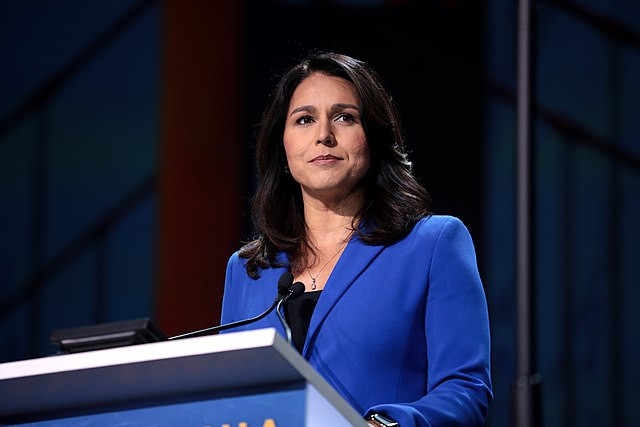President-elect Donald Trump's nomination of Tulsi Gabbard as Director of National Intelligence (DNI) has drawn sharp criticism, reigniting scrutiny over her history of supporting Russian foreign policy and echoing Kremlin narratives. Gabbard, a former Democratic congresswoman and 2020 presidential candidate, has long been criticized for her controversial stances on foreign conflicts, particularly her defense of authoritarian regimes and alignment with Moscow.
As first reported by The Independent, Gabbard's foreign policy record has provoked bipartisan opposition to her nomination. Her tenure in Congress was marked by skepticism of U.S. intelligence assessments and vocal support for Syrian President Bashar al-Assad, whom she met in Damascus in 2017. Gabbard also supported Russia's intervention in the Syrian civil war, despite its devastating impact on civilians.
In a 2015 tweet, Gabbard controversially praised Russian President Vladimir Putin's actions in Syria, stating, "Al-Qaeda attacked us on 9/11 and must be defeated. Obama won't bomb them in Syria. Putin did. #neverforget911." Her comments were widely criticized for ignoring Russia's role in propping up Assad's regime, which has been accused of committing war crimes.
Mouaz Moustafa, a Syrian activist who accompanied Gabbard on a congressional delegation to the Syria-Turkey border in 2015, described her as dismissive of victims of Russian and Syrian airstrikes. Moustafa recalled a particularly troubling interaction with three young Syrian girls who had suffered severe burns from an airstrike. Gabbard asked the girls, "How do you know it was Bashar al-Assad or Russia that bombed you, and not ISIS?" The question, Moustafa said, was so "absurd" he chose not to translate it to avoid further distressing the children.
"What was shocking was her lack of empathy," Moustafa said. "She'll sacrifice the facts, even when it came to little girls in front of her telling her they got bombed by a plane - it didn't matter."
Gabbard's alignment with Russian narratives extends beyond Syria. During Russia's 2022 invasion of Ukraine, she suggested the conflict could have been avoided if the U.S. had acknowledged Moscow's "legitimate security concerns" regarding NATO expansion. Critics condemned her remarks as parroting Kremlin propaganda.
Charles Lister, a senior fellow at the Middle East Institute, described her positions as "wildly fringe," telling The Independent, "Her descriptions of the crisis in Syria read like they were composed in Assad's personal office, or in Tehran or Moscow - not Washington."
Her nomination for DNI, a position overseeing the 18 agencies that comprise the U.S. intelligence community, has alarmed national security experts. Larry Pfeiffer, former chief of staff at the CIA, raised concerns about her ability to lead without bias. "Her long history of statements that seem to come out of the Kremlin's notebook raises serious questions about her ability to present the intel community's perspective as it is," Pfeiffer said.
Trump's announcement of Gabbard's nomination praised her as a "fearless" leader who would "champion our Constitutional Rights and secure Peace through Strength." However, her critics argue that her track record undermines the credibility required for the role, which was created in the aftermath of the 9/11 attacks to address intelligence failures.
Senators from both parties are expected to challenge Gabbard's positions during her confirmation hearings. Her past comments, including her defense of Assad and her skepticism of U.S. intelligence, are likely to dominate discussions.
Gabbard's defenders, including former Trump adviser Steve Bannon, argue that her nomination represents a shakeup of the intelligence community. However, her critics fear that her history of promoting conspiracy theories and defending autocratic leaders poses a significant risk to U.S. national security.






